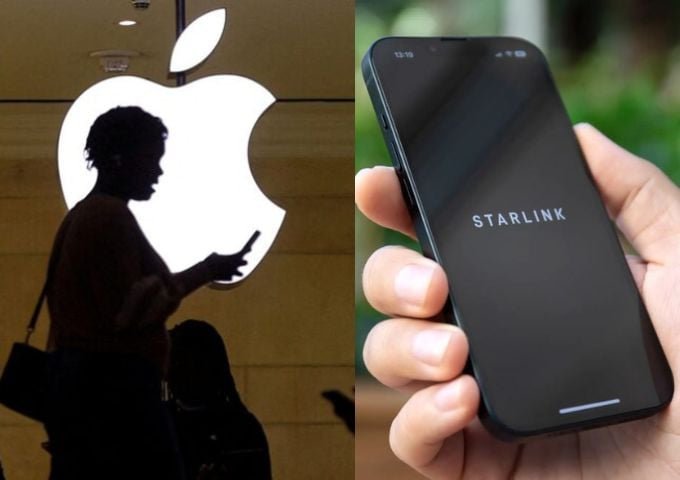iphone users raise concerns over Elon Musk’s Starlink connectivity in iOS 18.3 update, fearing privacy risks.
Apple’s latest iOS 18.3 update has ignited a heated debate among iPhone users, with a significant divide over its new Starlink satellite connectivity feature. While some see it as a revolutionary advancement in mobile communication, others are raising concerns over privacy, exclusivity, and the potential for reduced user autonomy.
A Game-Changing Connectivity Feature?
The highlight of the iOS 18.3 update is its groundbreaking satellite messaging feature, developed in collaboration with SpaceX and T-Mobile. This new capability allows users to send text messages via Starlink satellites when traditional cellular networks are unavailable. The feature could be a game-changer for those in remote locations, providing a critical communication tool in emergencies where standard service is unreliable or non-existent.
Apple’s decision to partner with SpaceX and T-Mobile marks a significant shift toward satellite-driven mobile connectivity. This move aligns with the tech industry’s broader push to expand global access to communication services, ensuring that users are never truly disconnected.
Exclusive to T-Mobile: Frustration Mounts
Despite its promising benefits, the rollout of this feature has been met with frustration among non-T-Mobile users. Currently, the satellite connectivity is only available to T-Mobile customers, leaving those on other carriers feeling left out. Many have expressed their discontent on social media, arguing that Apple should have made this feature universally accessible rather than restricting it to a single carrier during its beta phase.
For users who rely on other networks, this exclusivity raises concerns about Apple’s future approach to carrier partnerships. Some worry that similar restrictions could be applied to future iOS features, creating a fragmented user experience.
Privacy Concerns: A New Surveillance Threat?
Another major point of contention surrounding the Starlink integration is the potential risk to user privacy. While Apple has long been an advocate for data security, skeptics fear that satellite messaging could introduce new vulnerabilities. The involvement of Starlink, a SpaceX-owned network, has led to questions about data interception, government surveillance, and whether user messages could be logged or monitored.
Privacy advocates have urged Apple to provide clear transparency on how data will be handled within this system. So far, Apple has reassured users that all messages sent via satellite will be end-to-end encrypted, similar to iMessage. However, concerns persist, with some users opting to delay updating their devices until more information is provided.
Influencers Weigh In: Calls to Disable Auto-Updates
Social media influencers have played a major role in shaping the public discourse surrounding iOS 18.3. Tech influencer Koch Head, among others, has publicly advised users to avoid the update altogether, warning that it could introduce unexpected changes to their devices. Many influencers are urging users to disable automatic updates to prevent the installation of iOS 18.3 without their consent.
This wave of skepticism highlights a broader issue: Apple’s ability to introduce major system changes without direct user approval. While automatic updates are designed to improve security and performance, they can also introduce controversial features that users may not want.
A Double-Edged Sword: Innovation vs. User Autonomy
While the satellite messaging feature holds immense potential, it has also sparked discussions about user autonomy. Many iPhone users feel that they should have the option to disable satellite connectivity if they do not wish to use it. Some have gone so far as to say they would consider switching to another smartphone brand if Apple continues to implement major changes without providing an opt-out mechanism.
The push-and-pull between technological advancement and user control is not new, but this latest debate emphasizes the importance of choice in the modern digital landscape. Users want innovation, but they also want the ability to decide how and when new features impact their devices.
The Future of Satellite Connectivity on iPhone
Despite the controversy, Apple’s foray into satellite connectivity represents a major step toward a more connected world. As more competitors enter the satellite communication space, we can expect other smartphone manufacturers to follow suit, potentially making satellite messaging a standard feature in the years to come.
For now, users must decide whether to embrace the update or wait for further clarifications from Apple. The debate over iOS 18.3 underscores a broader conversation about the balance between innovation, privacy, and consumer choice—one that will undoubtedly shape the future of mobile technology.
Final Thoughts: Should You Update?
Before installing iOS 18.3, iPhone users should carefully weigh the benefits and risks. If you are a T-Mobile customer who frequently finds yourself in areas with poor cellular coverage, this update could be a lifesaver. However, if privacy concerns or lack of carrier support are dealbreakers, it may be worth waiting until Apple provides more details or expands availability to other networks.
As the conversation around iOS 18.3 continues, one thing is certain: Apple’s bold leap into satellite connectivity is a major milestone, one that has the potential to redefine mobile communication as we know it.










